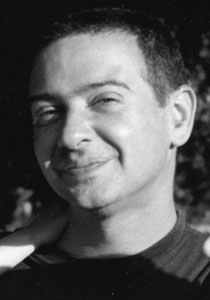
The Portuguese are always making revolutions. When a Portuguese goes to bed he makes a revolution, because the Portuguese who awakes up the nex day is quite different. He is precisely a day older. Other people wake up every morning yesterday. Tomorrow is always several year away.
They go so quick that they leave everything undone, including going quick.
Há algo de anedótico no pensar a cada vez mais irrelevante «sensação» de ser português (de ter nascido por aqui e continuar ainda por cá). Há nestes textos de Pessoa um ar de manifesto, que com ligeiros cortes lhe retirariam aquela enfadonha armadura pseudo-lógica que lhe estrutura processualmente o raciocinio. Vou experimentar aqui um exemplo a partir de uma carta.
What the movement called sensationism is?
We descend from three older movements : French «symbolism», Portuguese transcendentalist pantheism, and the jumble of senseless and contradictory things of wich futurism, cubism and the like are occasional expressions, though, to be exact, we descend more from the spirit then from the letter of these.
a) From French symbolism we derive our fundamental attitude of excessive attention to our sensations, our frequent dealing in ennui, in apathy, in renouncement before the simple and the sanest things of life.
b) From the Portuguese transcendentalist pantheism we owe the fact that in our work spirit and matter are interpenetreted and inter-transcended.
c) As to our influences from the modern movement that embraces cubism and futurism we have intellectualized their processes. The decomposition of the model they realise we have carriede into what we believe to be the proper sphere of that decomposition - not things, but our sensation of things.
WHAT IS THE CENTRAL ATTITUDE OF SENSATIONISM?
1. The only reality in life is sensation. The only reality in art is consciousness of sensation.
2.There is no philosophy, no ethics and no asthetics even in art, whatever there may be in life. Ideas are sensations. No artist can believe or desbelieve ideas. When he works he either believes and desbelieves, according to the thought that best enables him to obtain consciousness and give expression to his sensation of the moment.
3. Art, fully defined, is the harmonic expression of our consciousness of sensations; that is to say, our sensations must be so expressed that they create an object wich will be a sensation to the others. Art is sensation multiplied by consciousness - multiplied, be it well noted.
4. The principles of art are:
They go so quick that they leave everything undone, including going quick.
Há algo de anedótico no pensar a cada vez mais irrelevante «sensação» de ser português (de ter nascido por aqui e continuar ainda por cá). Há nestes textos de Pessoa um ar de manifesto, que com ligeiros cortes lhe retirariam aquela enfadonha armadura pseudo-lógica que lhe estrutura processualmente o raciocinio. Vou experimentar aqui um exemplo a partir de uma carta.
What the movement called sensationism is?
We descend from three older movements : French «symbolism», Portuguese transcendentalist pantheism, and the jumble of senseless and contradictory things of wich futurism, cubism and the like are occasional expressions, though, to be exact, we descend more from the spirit then from the letter of these.
a) From French symbolism we derive our fundamental attitude of excessive attention to our sensations, our frequent dealing in ennui, in apathy, in renouncement before the simple and the sanest things of life.
b) From the Portuguese transcendentalist pantheism we owe the fact that in our work spirit and matter are interpenetreted and inter-transcended.
c) As to our influences from the modern movement that embraces cubism and futurism we have intellectualized their processes. The decomposition of the model they realise we have carriede into what we believe to be the proper sphere of that decomposition - not things, but our sensation of things.
WHAT IS THE CENTRAL ATTITUDE OF SENSATIONISM?
1. The only reality in life is sensation. The only reality in art is consciousness of sensation.
2.There is no philosophy, no ethics and no asthetics even in art, whatever there may be in life. Ideas are sensations. No artist can believe or desbelieve ideas. When he works he either believes and desbelieves, according to the thought that best enables him to obtain consciousness and give expression to his sensation of the moment.
3. Art, fully defined, is the harmonic expression of our consciousness of sensations; that is to say, our sensations must be so expressed that they create an object wich will be a sensation to the others. Art is sensation multiplied by consciousness - multiplied, be it well noted.
4. The principles of art are:
a) every sensation should be expressed to the full, that is, the consciousness of every sensation should be shifted to the bottom;
b) the sensation should be so expressed that it has the possibility of evoking the greatest possible number of other sensations;
c) the whole thus produced should have the greatest possible ressemblance to an organized being, because that is the condition of vitality.
I am no longer what I was in the paragraphs above as I write this.
If I am ever coherent, it is only as an incoherence from incoherence.
I am no longer what I was in the paragraphs above as I write this.
If I am ever coherent, it is only as an incoherence from incoherence.

No comments:
Post a Comment